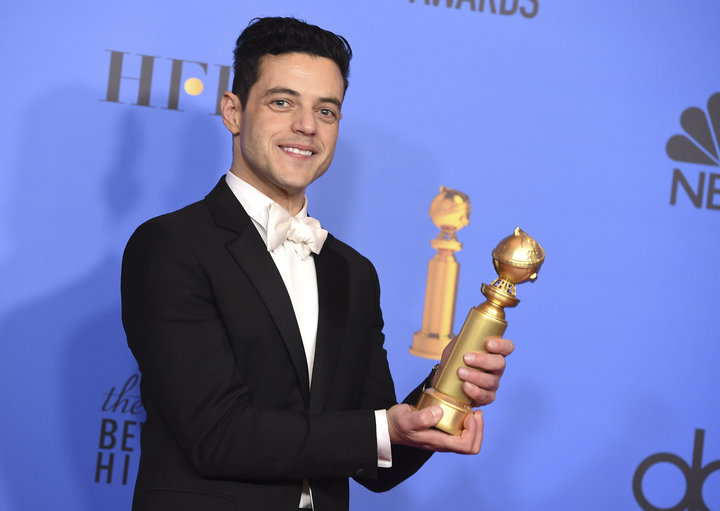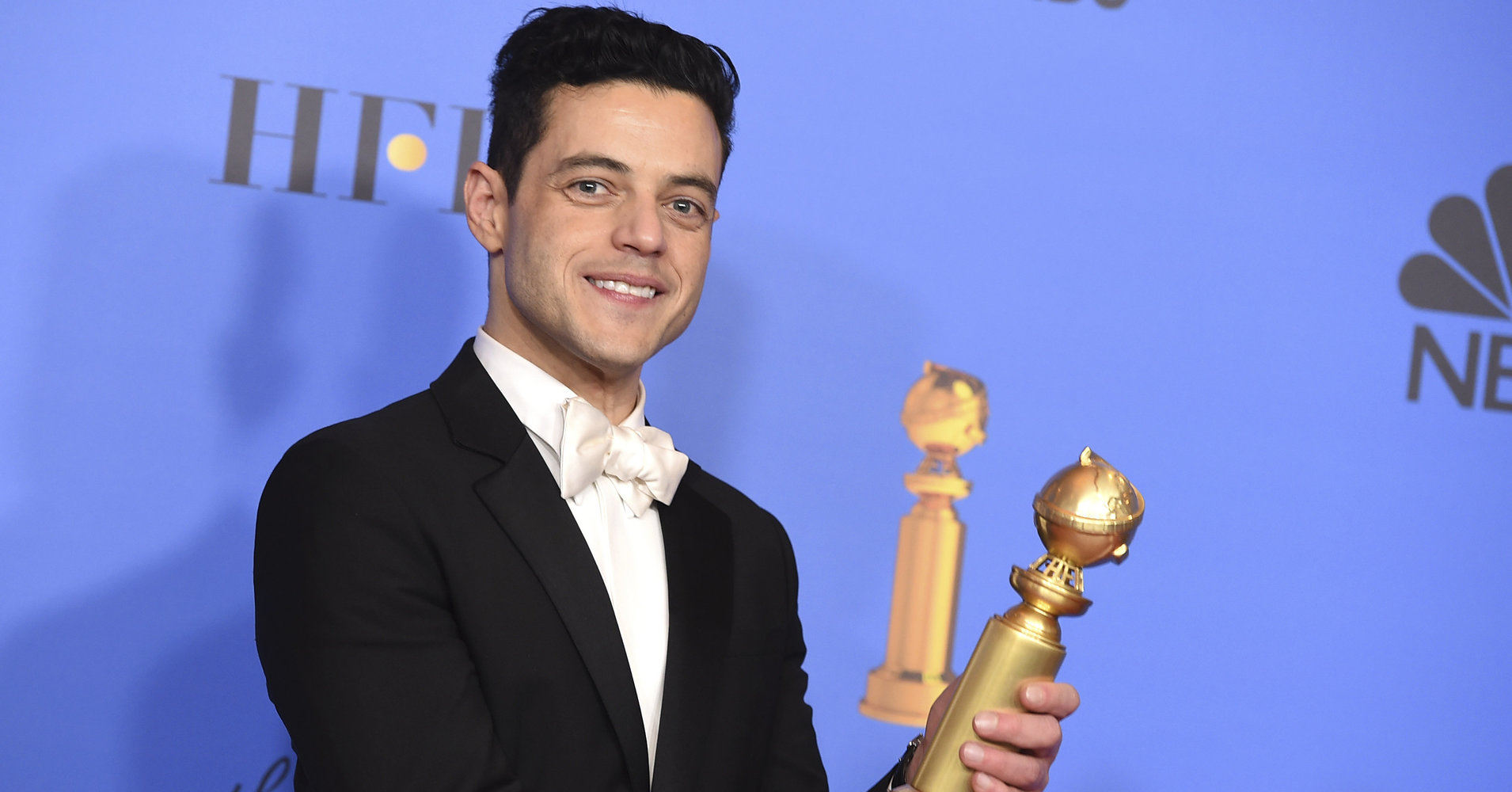[ad_1]
Parts of the Golden Globes ceremony Sunday night seemed like a happy montage of what change in Hollywood looks like.
“I said yes to the fear of being on this stage tonight because I wanted to be here to look out into this audience and witness this moment of change,” co-host Sandra Oh said at the end of her opening monologue with Andy Samberg. “I’m not fooling myself. Next year could be different. It probably will be. But right now, this moment is real. Trust me, it is real. Because I see you, and I see you. All of these faces of change. And now, so will everyone else.”
But Oh’s cautious optimism proved prophetic that very night. The ceremony started with a number of moments that signaled progress in the industry; winners including Oh and “If Beale Street Could Talk” star Regina King spoke about the significance of their victories while pushing for more racial and gender equality, and presenters referenced the diverse casts in nominated films such as “Black Panther” and “Crazy Rich Asians.”
Compared to the rest of the night, it was a jarring conclusion.
Up until that point, the “Killing Eve” star’s monologue set a different tone, with jokes about disapproving Asian mothers and remedies for Asian flush ― making Asians feel seen for perhaps the first time during a major award show. Oh pulled no punches when skewering Hollywood’s history of whitewashing, quipping that Best Comedy nominee “Crazy Rich Asians” was “the first studio film with an Asian-American lead since ‘Ghost in the Shell’ and ‘Aloha.’”
It prompted one of the night’s most memorable moments: Emma Stone, who inexplicably played a Hawaiian and Chinese character in the widely panned “Aloha,” shouted: “I’m sorry!”
Several winners who took the stage to deliver powerful speeches acknowledged the significance of their triumphs, too.
King told “If Beale Street Could Talk” director Barry Jenkins that after seeing the James Baldwin adaptation, her son remarked “it was the first time that he really saw himself.” She also pledged that everything she produced would be “50 percent women,” a nod to a new initiative from the Time’s Up movement that pushes all industries to fill half their leadership roles with women.
When Oh won in her category, she thanked her Korean immigrant parents in their native tongue.
Later, “The Assassination of Gianni Versace: American Crime Story” star Darren Criss dedicated his Best Actor in a Limited Series award to his mother, “a firecracker Filipina woman.”
When that limited series won in its category, executive producer Brad Simpson paid homage to the series’ subject, slain fashion designer Gianni Versace. Simpson said Versace had been an openly gay man “during a time of intense fear and hate,” warned that “those forces of hate are still with us,” and called on artists to “fight back by representing those not represented and by providing a space for people for new voices to tell stories that haven’t been told.”
So as the evening wore on, the Hollywood Foreign Press Association’s apparent ardor for “Bohemian Rhapsody” and “Green Book” felt like a slap in the face.

Jordan Strauss/Invision/AP
“Bohemian Rhapsody” winning for Best Motion Picture – Drama was a questionable choice: The Globes rewarded a standard music biopic that doesn’t adequately address Queen frontman Freddie Mercury’s queer and Parsi identity.
During their acceptance speeches, neither producer Graham King nor star Rami Malek directly acknowledged the significance of Mercury’s identity. And in a post-show press conference, cast and crew continued to sidestep questions about the film’s original director, Bryan Singer, who has a long history of inappropriate behavior, including allegations of verbal harassment and sexual abuse.
Best Motion Picture – Musical or Comedy winner “Green Book” ― which depicts the unlikely friendship between black pianist Don Shirley and his white driver, Tony Vallelonga ― took substantial liberties to reach its feel-good conclusion, according to Shirley’s family members, who called the movie “a symphony of lies.”
In his acceptance speech, “Green Book” director Peter Farrelly argued that all we need to do to solve racism is “look for what we have in common.”
Like his movie, Farrelly’s speech glossed over the systemic and institutional causes of racism, revealing a simplistic and tone-deaf mentality that felt completely devoid of substance ― and that didn’t jibe with the meaningful moments that characterized the earlier parts of Sunday’s ceremony.
Beyond Oh’s prescient line, the evening’s proceedings were a metaphor for the incremental pace of social change itself: one step forward, two steps back.
CORRECTION: A previous version of this story incorrectly said Oh was the first Asian woman to win in her category. Yoko Shimada won in 1981 for her role in “Shogun.”
[ad_2]
Source link

